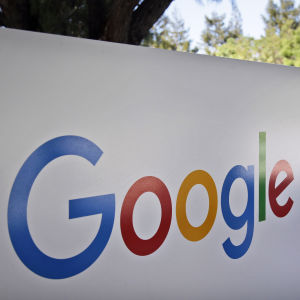One term paper stands between you and graduation. You’ve set your sights on law school, and your grade could make the difference in the competitive admissions process.
But as the deadline looms, the paper remains lackluster. Fearing the submission won’t resonate with your audience, you copy from another author whose language and framework brings the subject to life. Worried the professor will be less impressed if it’s clear that prose isn’t yours, you omit quotation marks and citations.
What you’ve done, of course, is plagiarize. If caught, you will likely receive an “F” for the paper — or possibly the class — and could even be expelled.
Change “language in a paper” to “computer code for mobile devices,” and you’ve got facts like those in Google v. Oracle America, a copyright case that was recently argued before the Supreme Court.
And while plagiarism involves taking words and ideas without attribution, whereas copyright infringement involves taking expression without authorization, both reflect misappropriation of intellectual labor.
News publishers know a lot about the topic because it happens to us every day of the week.
In the Supreme Court case, Oracle accuses Google of kick-starting Android in 2007 by copying without permission 11,500 lines of “declaring code” from the Java software platform, along with the code’s structure and organization.
The declaring code, which is part of the Java “application programming interface,” enables developers to call up pre-written program modules as a shortcut for executing specific functions on devices.
Because of this and other benefits, developers widely adopted Java, including for mobile applications.
As eyeballs migrated from desktops to mobile devices, Google feared its advertising-based business model would suffer if it didn’t soon get into the smartphone market.
But Google’s attempts to build easy-to-use, Java-like modules for Android were coming up short. So Google chose to copy the declaring code, which would make Android more appealing to the many developers that knew Java.
More developers building Android applications would mean more device manufacturers licensing Android, and more eyeballs and advertising revenue for Google.
Google could instead have created its own code, just as Apple had done. Google could also have licensed the entire Java platform from Oracle, or even just the declaring code.
But discussions broke down because Google refused to ensure Android remained compatible with Java, a license term Oracle wanted to preserve Java’s “write once, run anywhere” capability.
Google is certainly free to walk away from license terms it doesn’t like. What it cannot do is then still use the Java code without permission. Computer programs are copyrightable as “literary works” under the Copyright Act and, as the “author,” Oracle sued.
Among other things, Google argues that even if Oracle’s declaring code was copyrightable, Google’s copying falls within the “fair use” doctrine because its inclusion of that code in Android was “transformative.”
Google’s copying was clearly competing rather than transformative, however: it used the exact same declaring code to woo developers to create similar applications on its rival platform.
Why is any of this important to news publishing? Because the major digital platforms — including Google — also use over-reaching claims of “fair use” to disproportionately profit off our news content.
We invest the time and resources to generate critical journalism, and they manipulate the online ecosystem to get most of the money from it. That is not only wrong and unfair but, ultimately, dangerous. The outcome of this case has major implications for our future.
At bottom, Google is arguing that designing software will be harder if programmers can’t copy others’ work without permission. That is true of every endeavor, where stealing is always easier than doing the work.
But the goal of copyright is to encourage innovation by rewarding those who create new works. If the Supreme Court blessed Google’s copying, it would deny Oracle the fruits of its declaring code and remove the incentive for Google or others to create something new.
In essence, Google seeks to re-write copyright law at the Supreme Court.
Its efforts should be no more availing than those of a student caught lifting language who asks the dean to re-write the definition of plagiarism.

